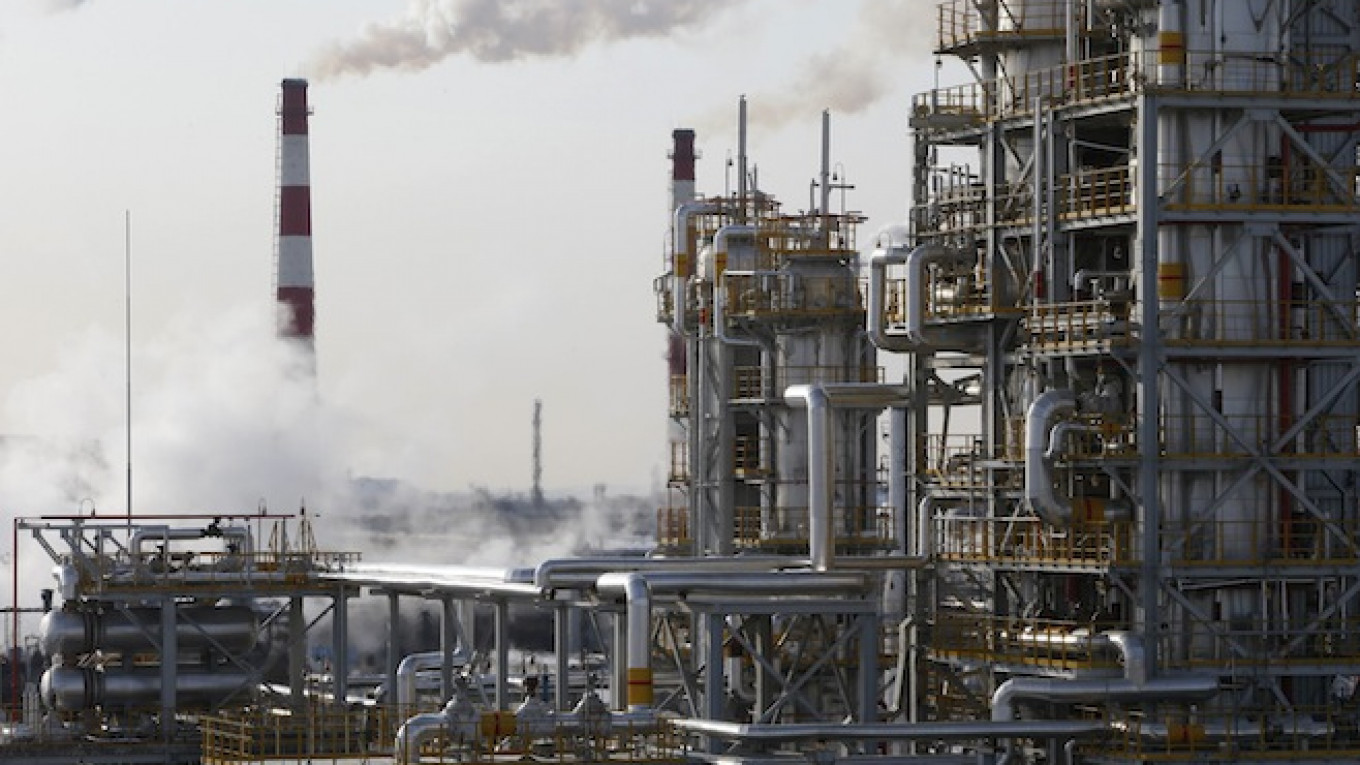Russia will produce 560,000 fewer barrels of oil per day by 2020 as Western sanctions and low oil price slice into output, according to a report released Tuesday by the International Energy Agency (IEA).
Russia, one of the world's largest oil exporters, faces a "perfect storm of collapsing prices, international sanctions and currency depreciation," and will likely emerge as the oil industry's "top loser," from cheap oil, the report by the Paris-based organization said.
By 2020 Russia will produce only 10.4 million barrels per day (bpd), the IEA said, down from 10.9 million bpd last year — a fall of 4.8 percent.
Russian relies for half of its budget revenues on sales of oil and gas, making the economy vulnerable to falls in output.
The report contradicts an IEA forecast released last year that saw Russia's oil production growing by around 200,000 barrels per day by 2020, illustrating the turmoil roiling the oil industry. ?
Western sanctions over Moscow's role in Ukraine have had a "debilitating effect on Russian production capacity" in combination with the recent dip low oil prices to under $60 a barrel, the report said.
Russia's oil production growth depends on developing new hard-to-reach oil fields, particularly in the Arctic. Russian oil firms may be forced to freeze these plans as the low oil price, in combination with Western sanctions on oil firms' long-term financing and exploration technology, makes these types of operations unfeasible.
Russian companies will also have to focus on considerable debt repayments to Western firms, which, given the ruble's depreciation of 50 percent to the U.S. dollar since last summer, have already forced some to seek government aid. Lower cash reserves mean oil firms will have to scrimp on maintaining output on existing fields, further reducing extraction volumes, the IEA said.
The report also cited regulatory and structural problems as factors weighing on Russia's expected oil output. The government takeover of private oil firm Bashneft last year, reminiscent of the state appropriation of Russia's largest oil company Yukos in the 2000s, will discourage oil investment, the report said.
A Message from The Moscow Times:
Dear readers,
We are facing unprecedented challenges. Russia's Prosecutor General's Office has designated The Moscow Times as an "undesirable" organization, criminalizing our work and putting our staff at risk of prosecution. This follows our earlier unjust labeling as a "foreign agent."
These actions are direct attempts to silence independent journalism in Russia. The authorities claim our work "discredits the decisions of the Russian leadership." We see things differently: we strive to provide accurate, unbiased reporting on Russia.
We, the journalists of The Moscow Times, refuse to be silenced. But to continue our work, we need your help.
Your support, no matter how small, makes a world of difference. If you can, please support us monthly starting from just $2. It's quick to set up, and every contribution makes a significant impact.
By supporting The Moscow Times, you're defending open, independent journalism in the face of repression. Thank you for standing with us.
Remind me later.


